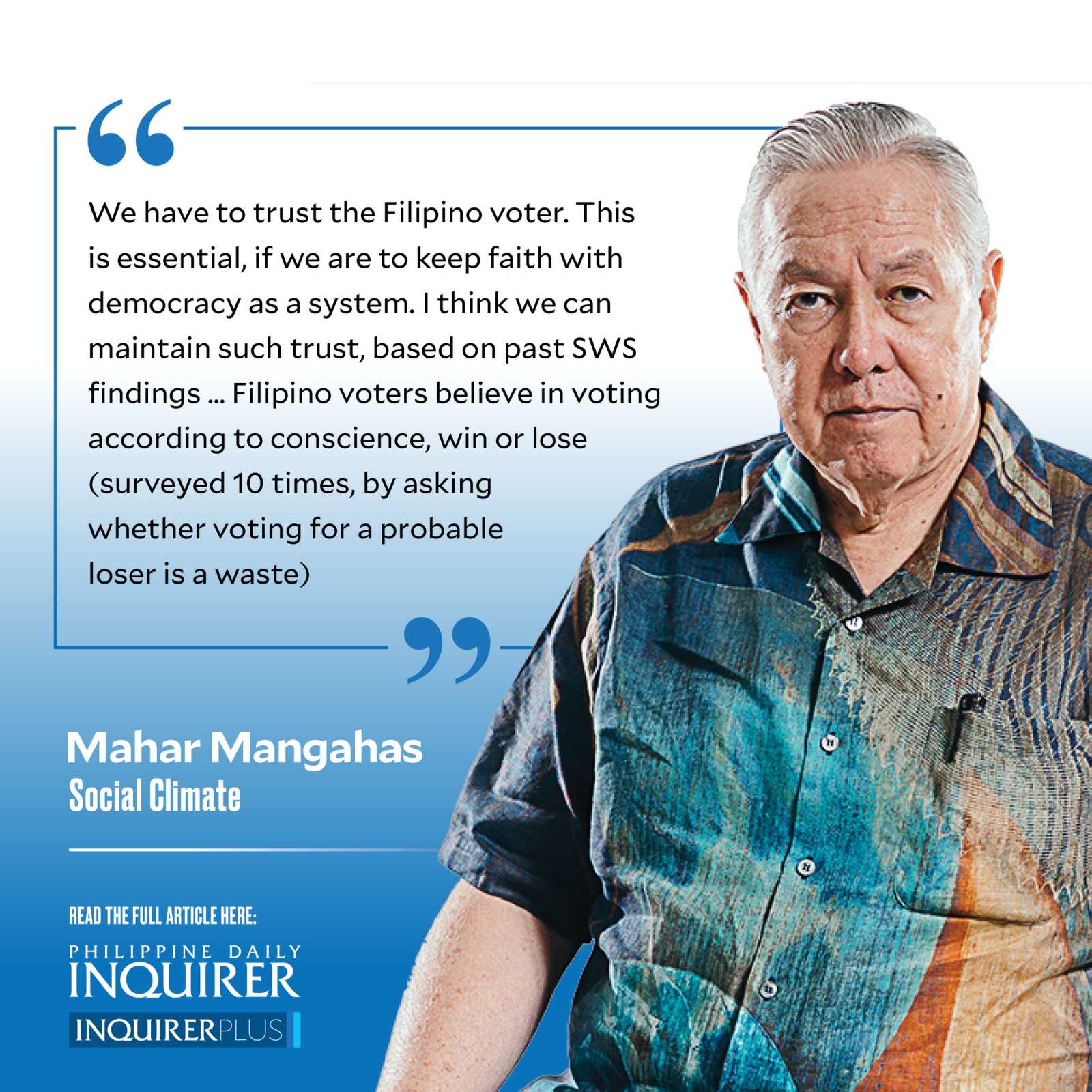Survey research in good shape

I write this after last Wednesday’s Jaime V. Ongpin annual memorial lecture, “Survey says or not?” given by Jose Ramon G. “Toots” Albert, former national statistician, now senior research fellow of the Philippine Institute for Development Studies. His discussants—Tomas P. “Butch” Africa, former administrator of the National Statistics Office (NSO), Nicco A. de Jesus, former head of the Marketing and Opinion Research Society of the Philippines (MORES), and Zita V. Albacea, professor at the UP Los Baños Institute of Statistics—are good representatives of government survey doers, business sector survey doers, and academic statisticians.
Toots excoriated kalye or person-on-the-street interviews as very poor means of obtaining a statistical sample. The street is merely an easy place to find people to interview. But scientific statistics requires data based on probability sampling, or else the formulas for computing the error margin won’t apply.
The discussants stressed that the science is the same, whether applied in the government, private sector, academia, or anywhere else. No probability sample, no statistics.
Toots dismissed the common suggestion that “10 percent” of the population is required for an adequate sample. If that were true, then the required samples should steadily grow over time, in line with population growth! Actually, the norm of 1,000 respondents in a national sample works as well today as it did decades ago, when the Filipino people were only 50 million.
A scientific survey researcher doesn’t accept volunteers to be respondents. She—because interviewers are almost always female—locates potential respondents in the field by means of a very careful probability-based process, and then invites them to be respondents.
I’m not impressed by claims that a foreign research company has amassed a panel of hundreds of thousands of potential Filipino respondents, and then samples from the panel. In survey research, the term “panel” means a group to be repeatedly surveyed; that’s how a consumer market panel works, for instance, with members recruited by advertisements. It implies a reward to the respondent for joining the panel and then staying in it over a period of time.
For a consumer panel, the common reward is free samples of the products to be evaluated. On the other hand, how is a voter panel recruited, and what kind of reward is promised them, for them to be unbiased, and stay that way, as to their candidate preferences?
It was gratifying to see the survey findings of Social Weather Stations (www.sws.org.ph), especially the time series, extensively used, thus demonstrating that SWS data are readily available. Surveys from January to May of election years show many changes in the candidates’ standings. Surveys from the previous year serve mainly as background, and hardly foretell how the race will end (see “Too early to worry,” inquirer.net, 10/23/21).
We have to trust the Filipino voter. This is essential, if we are to keep faith with democracy as a system. I think we can maintain such trust, based on past SWS findings. Shortly before the 2016 election, in “Filipino voters are not sheep” (inquirer.net, 3/15/16), I stated that:
Filipino voters put social interest above self-interest (surveyed twice, by probing into voting for a candidate who will serve most people but not benefit the respondent him/herself);
Filipino voters believe in voting according to conscience, win or lose (surveyed 10 times, by asking whether voting for a probable loser is a waste);
Filipino voters deny the existence of command voting (8 times, by probing into whether local leaders just dictate how the respondent’s community should vote);
Filipino voters consider popular support more powerful than political machinery (5 times, by asking what they think makes a candidate win); and
Filipino voters, nevertheless, mostly think that taking money in an election is justified, as long as one votes according to conscience (12 times).
Is this still the way Filipino voters feel today? That would be my starting point, but by repeating the above probes in forthcoming SWS surveys, we will find out. That’s science.
—————–
Contact: mahar.mangahas@sws.org.ph




















